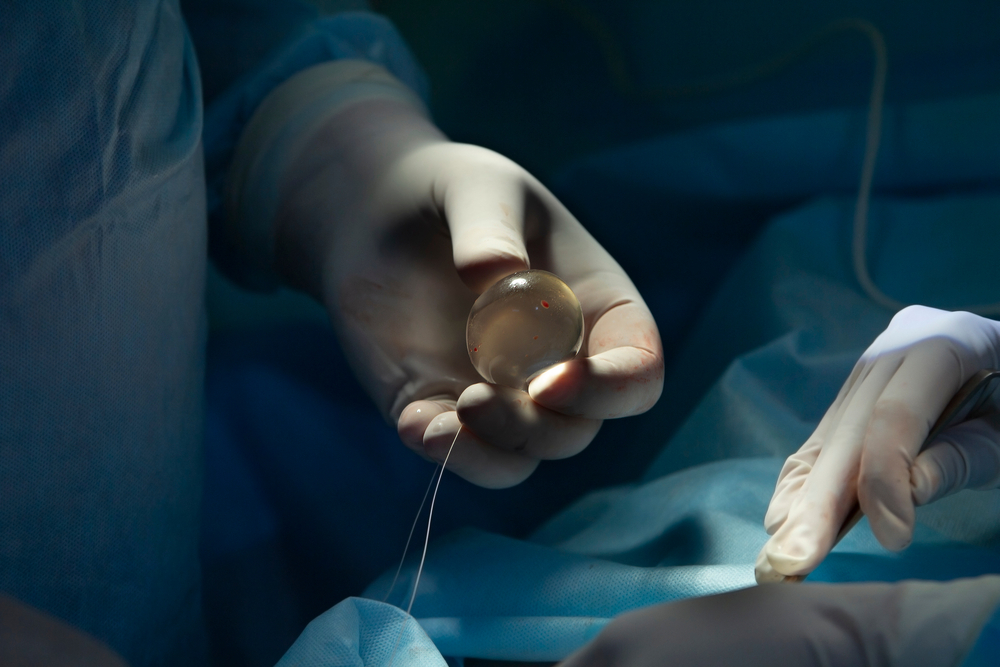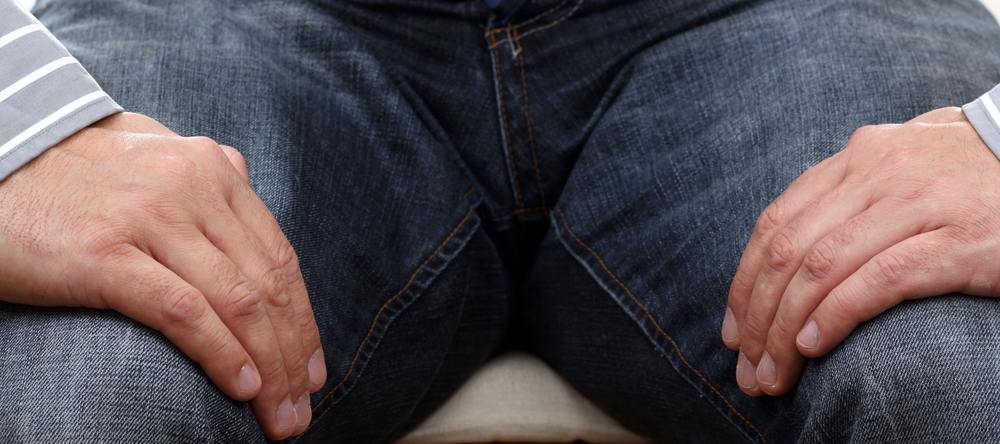Prosthetic Testicular Implants in Los Angeles & San Francisco, CA

Recreate the Appearance of a Natural Testicle with an Implant
The decision to get a testicle implant is a very personal one. If you have lost one or both testicles to cancer or a traumatic accident, having a testicle implant may play an important role in your healing process. If you were born without one or both testicles, implants can help you enjoy the realistic look and feel that perhaps you always wanted.
What to Know about Testicular Implants

A testicular implant fills the empty space in the scrotum, or the sac that normally holds the testicles. Implants mimic the shape, weight and texture of natural testicles, and are available in several sizes (extra small, small, medium, large and extra large) to suit the needs of adults, adolescents and pediatric patients. They recreate a lifelike appearance and feel comfortable.
Testicular implants are made from solid silicone (“soft gel”) and also silicone rubber casing filled with saline (a sterile saltwater solution). The “soft gel” devices are essentially solid silicone and do not “leak” over time. If the silicone-saline devices develop a leak, there is no danger to you or your health. Your body simply absorbs the saline.
Testicular Implant Surgery
Testicular implant surgery is performed on an outpatient, come and go basis. A light general anesthetic is used to prevent you from feeling any pain during surgery. Surgery should last an hour or less. Local anesthesia is used during the case to ensure a comfortable early recovery.
Preparing for Surgery
Pre-operative planning is essential to ensure the safety of the procedure. Prior to testicular implant surgery, Dr. Turek will examine you to determine which size and which device best suits your needs. If you have one normal testicle, the implant will be sized to match it. If you are missing both testicles, the implants will be sized to fit your scrotum. He may also require routine medical tests to ensure that you are a good candidate for anesthesia as well.
Surgical Details
At surgery, Dr. Turek will create an incision among the folds of the upper scrotum so that the scar is not obvious afterwards. Through the incision, he will make a pouch for the testicular implant and insert the implant into the correct position. He may fix it into place to prevent it from shifting or moving around in the scrotum. Once the implant is properly in place, Dr. Turek will suture the incision closed.
Recovering from Surgery
Dr. Turek and his team will provide you with complete instructions for post-operative care and limitations before you leave surgery. As Dr. Turek uses a “biological dressing,” there are no bandages to remove and you can shower daily. You may need to take antibiotics for 3 days afterwards. Dr. Turek will follow you closely daily on a proprietary online “house call” service called GetWellLoop® and may request to see you in his office in follow-up.
Swelling, discomfort, some bruising and tenderness to the touch are common for several days after testicular implant surgery. Prescription or over-the-counter medications such as Tylenol can be taken for pain management. Pain that persists or worsens after surgery should be reported to Dr. Turek, as this could indicate something unusual is happening. The swelling and tenderness will subside with time. Typically, the final “look” of the implant is achieved after 2-3 weeks.

Patients usually go back to work and other physical activities within 3 days of surgery. Dr. Turek can give you a more precise timeline according to your age, health, the nature of your job and other factors. He can also advise when it is safe to resume strenuous exercise, including lifting weights and riding a bike.
You may resume sexual activity approximately two weeks after surgery. The placement of an implant should not interfere with your ability to get or sustain an erection or ejaculate.
Lasting complications are very unusual when testicular implant surgery is performed by someone with Dr. Turek’s high level of expertise and experience. If you have concerns about the safety of testicular implants, please bring them up to the doctor in consultation.
Talking to a men’s health expert can clarify the available options and assist you in deciding how to proceed. Known as the Father of Testis Prosthesis, Dr. Paul Turek is a pioneer in the testicular implant field. Thanks to him, thousands of men have reclaimed a natural appearance and experienced a surge in self-confidence. But like you, they had questions and doubts at one point. Dr. Turek can answer all your questions about testicular implants and put any concerns or worries to rest during a one-on-one consultation.
Testicular Implant FAQs
Are there different types of testicular implants?
Yes, there are different types of testicular prostheses designed to meet varying patient needs. The most common types are made from silicone, which can either be a solid silicone elastomer or a silicone shell filled with saline (salt water). The solid silicone implant has a more natural feel and comes in a wide variety of sizes, whereas the saline-filled implants, which were the first to be FDA approved, are generally firmer and have fewer size choices to match the natural testicle as closely as possible. Dr Turek can also arrange for custom-sized implants to be made for patients with unusual anatomical requirements or preferences. Before surgically placing implants, Dr. Turek schedules a “sizing visit” to measure and assess the genitals and todiscuss the various implants with you to determine which type best suits your needs and expectations.
How long does the implant last?
Artificial testicles are designed to be long-lasting, with the vast majority of patients never needing a replacement. On average, a silicone testicular implant can last 10 to 20 years or longer. Periodic check-ups with Dr. Turek can help monitor the condition of the implant, and any issues that arise can be addressed promptly. If necessary, an implant can be replaced, although this is rare.
Can the implant be felt during physical activity?
Most patients report that a testicular prosthesis feels natural and does not cause discomfort during physical activity. The implant is designed to closely mimic the weight, shape, and texture of a natural testicle, and it is surgically placed exactly where a native testicle should be in the scrotum. While some patients may initially be aware of the implant, especially if it is adjacent to a native testicle that has not been partnered before, this sensation usually diminishes within months. During activities such as exercise or sexual activity, the implant should not cause pain or interfere with normal movements. If any discomfort or unusual sensations occur, it is important to consult with Dr. Turek.
Which age is good for testicular prosthesis implantation?
Testicular prosthesis implantation can be performed at any age.. For children or adolescents who have lost a testicle due to injury or surgery, implantation is often delayed until after puberty to allow for proper scrotal and testicular development at puberty and to ensure the implant matches the size of a natural adult testicle. Implants can also be placed before puberty, but will need to be replaced with a larger adult-size implant after puberty. For adults, implantation at any age is appropriate. The decision is usually based on the individual’s emotional and physical readiness, as well as their desire to restore a more natural appearance to the scrotum.
What are the characteristics of a good testicular implant?
A good testicular implant should closely mimic the size, shape, weight, and feel of a natural testicle. It should be made from biocompatible materials that are well-tolerated by the body, such as medical-grade silicone. The implant should also be durable and resistant to rupture or leakage, ensuring long-term reliability. Additionally, it should be available in various sizes to provide the best possible match for the patient’s anatomy. A high-quality implant will move naturally within the scrotum and should not cause discomfort during everyday activities. Importantly, FDA approval is required for all devices implanted in the body. Dr. Turek considered all of these factors when he designed the now-popular silicone shell-saline filled implant 2 decades ago.









